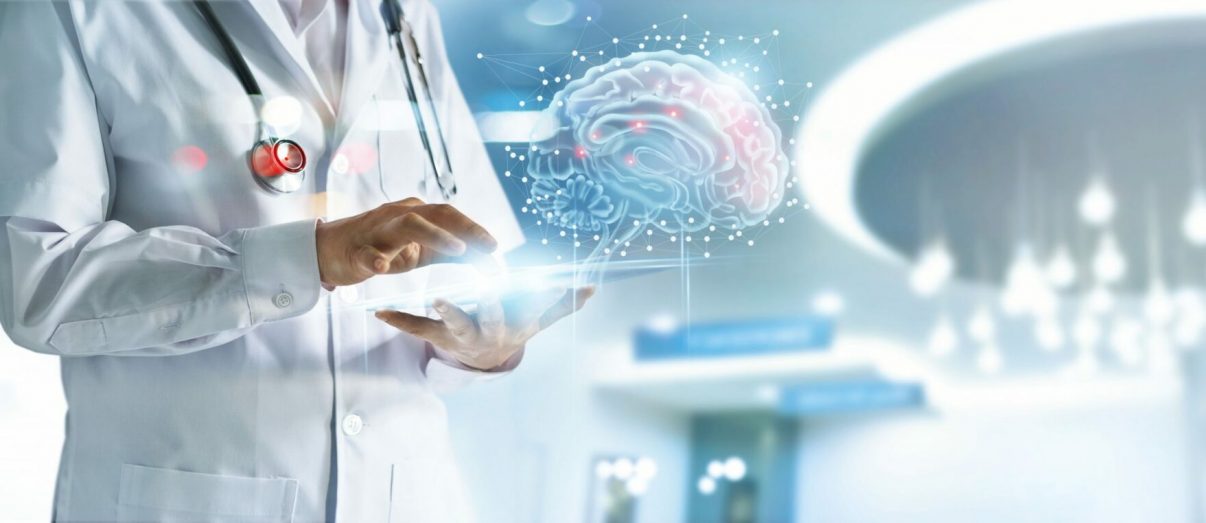Modern technology in medicine- Technology is breathing new life into the medical world, making the healthcare system faster, more accessible and safer than ever before. From mobile apps that record patient data in real time, to Google glasses that can help save patient lives in the Emergency room, there is a lot to get excited about for the future of medicine.
Telemedicine
All too often, patients living in remote areas face barriers to accessing immediate and specialised healthcare, however this no longer has to be the case. Thanks to low-cost and HD quality video-conferencing, telemedicine offers a valuable alternative that has been widely adopted around the world.
It’s proved particularly effective within the mental health field, where timeliness of care is critical and having instant access to professionals can have a huge impact. In a 2015 survey, nearly 80% of US doctors agreed that telemedicine provided a better alternative for managing chronic illnesses1.
Mobility and connectivity – allowing better patient care
Technology innovations have helped to speed up the interaction between healthcare facilities, improving efficiencies in clinical practice, and allowing doctors to treat patients in safer and more reliable ways. A prime example of this is the use of hand-held computers by doctors and nurses, enabling them to record and view important patient data instantaneously.
The ability to gather lab results, records of vital signs and other important patient information in the one area, has improved efficiency. It also leads to better patient outcomes, as doctors can make informed decisions and offer appropriate treatment faster than ever before.
Increasing connectivity between mobile and wearable devices allows patients to be monitored in real time and reduce the number of doctor visits required.
Having accurate, real-time data can reduce errors, by detecting risk factors and recommending preventative measures.
Smart hospital rooms
Enhancements in patient care can also be seen in the hospital rooms, with innovations like smart beds improving patient comfort and safety. The beds are able to sense when a patient is present and adjust automatically to provide adequate support. The modern technology in medicine also reduces the risk of patient falls.
Streamlining communication
Many hospitals in Australia and around the world, are still unable to trade records efficiently through their digital systems. In a US study of 40,487 referrals, only 54% of all faxed patient referrals resulted in scheduled appointments, due to communication issues. Replacing faxed referrals with a web-based application streamlined communication, improving the appointment rate to 83%2.
Exciting technology in the works
Google glasses
Soon doctors will have an extra pair of eyes! By using high-tech Google glasses, they will be able to process patient information, case notes and injuries in real time. The glasses will be able to verbally confirm diagnosis and suggest treatment options which will be particularly useful in the Emergency Department.
3D Printed Drugs
For many years, 3D printing has been used in the healthcare industry to build custom prosthetics and dental implants. Now 3D printing could also be used to create personalised 3D-printed oral tablets. According to medical writer C. Lee Ventola, personalised, 3D-printed medications will benefit patients who have different reactions to the same drug. A doctor or a pharmacist would be able to customise each medication dose, based on the patient’s personal characteristics.
Electronic implants
GSK’s Bioelectronics R&D unit are developing miniature, implantable devices. These implants will read and correct the transmission of electrical nerve signals. With irregular or altered impulses associated with a number of diseases, the devices may be able to treat disorders such as inflammatory bowel disease, arthritis, asthma, hypertension and diabetes.
Robotic surgeons
About 1000 da Vinci surgical robots have already emerged worldwide and they are becoming increasingly complex and intuitive. Some medical schools have already begun teaching future surgeons how to operate these robots, as an alternative to manually performing operations.
Whilst modern technology in medicine is on it’s way to transforming the day-to-day operations of the medical industry, the faces of medicine will be as important as ever in the future. And while it will not solve all of the challenges faced by the healthcare industry, it will provide doctors with superior tools to aid medical advancement and help them to continue to revolutionise patient care.
* This article was outsourced to a freelance writer and provides research based on factual information. The information is general and is not intended to serve as advice. DPM Financial Services Group recommends you obtain advice concerning specific matters before making a decision.
References:
www.ncbi.nlm.nih.gov/pmc/articles/PMC2686771





